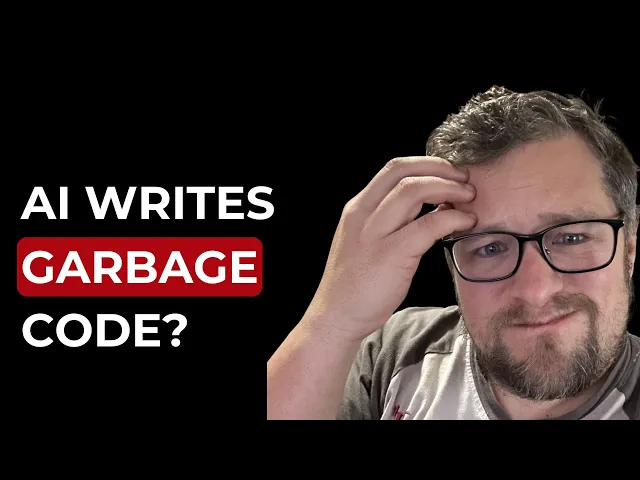AI Writes Garbage Code?

Better code through AI: the GitHub debate
In the rapidly evolving landscape of software development, AI code assistants like GitHub Copilot have sparked intense debate among developers. A recent discussion has ignited controversy around the quality of AI-generated code, with some developers asserting that tools like Copilot produce "garbage code" while others defend its capabilities. This tension highlights the growing pains of integrating AI into established software development workflows.
Key insights from the debate:
-
Context matters enormously – AI assistants perform significantly better when given proper context about the problem being solved, rather than vague prompts
-
Different skill levels perceive value differently – Junior developers may benefit more from AI assistance with boilerplate code, while senior developers might find the suggestions less sophisticated than what they would write
-
AI tools complement rather than replace human judgment – The most effective use case involves developers providing clear specifications and then critically evaluating, modifying, and integrating the AI-generated code
When AI becomes a valuable partner
The most compelling insight from this discussion is that AI code assistants aren't autonomous code generators but rather collaborative tools that require proper guidance to be effective. As one developer noted, "It's not that GitHub Copilot generates garbage code; it's that it generates the code you ask for." This perspective shift is crucial – these tools don't replace the developer's responsibility to understand requirements and design patterns; they accelerate implementation once those foundations are established.
This matters tremendously in today's software development environment, where pressure to deliver quickly often conflicts with maintaining code quality. The debate reflects a broader industry transition where AI is becoming integrated into development workflows, requiring teams to develop new skills around prompt engineering and AI collaboration rather than just traditional coding. Organizations that establish clear guidelines for effectively leveraging these tools will gain significant competitive advantages in development velocity.
Beyond the discussion: real-world implications
What the video doesn't address is how companies are developing formal strategies around AI coding assistants. For instance, Microsoft has implemented a tiered approach to AI code generation, where critical infrastructure components still require traditional code reviews, while less critical components can leverage AI assistance with lighter review processes. This pragmatic approach acknowledges both the capabilities and limitations of current AI systems.
Another dimension worth exploring is the productivity impact metrics. Early research from GitHub suggests that developers using Copilot
Recent Videos
How To Earn MONEY With Images (No Bullsh*t)
Smart earnings from your image collection In today's digital economy, passive income streams have become increasingly accessible to creators with various skill sets. A recent YouTube video cuts through the hype to explore legitimate ways photographers, designers, and even casual smartphone users can monetize their image collections. The strategies outlined don't rely on unrealistic promises or complicated schemes—instead, they focus on established marketplaces with proven revenue potential for image creators. Key Points Stock photography platforms like Shutterstock, Adobe Stock, and Getty Images remain viable income sources when you understand their specific requirements and optimize your submissions accordingly. Specialized marketplaces focusing...
Oct 3, 2025New SHAPE SHIFTING AI Robot Is Freaking People Out
Liquid robots will change everything In the quiet labs of Carnegie Mellon University, scientists have created something that feels plucked from science fiction—a magnetic slime robot that can transform between liquid and solid states, slipping through tight spaces before reassembling on the other side. This technology, showcased in a recent YouTube video, represents a significant leap beyond traditional robotics into a realm where machines mimic not just animal movements, but their fundamental physical properties. While the internet might be buzzing with dystopian concerns about "shape-shifting terminators," the reality offers far more promising applications that could revolutionize medicine, rescue operations, and...
Oct 3, 2025How To Do Homeless AI Tiktok Trend (Tiktok Homeless AI Tutorial)
AI homeless trend raises ethical concerns In an era where social media trends evolve faster than we can comprehend them, TikTok's "homeless AI" trend has sparked both creative engagement and serious ethical questions. The trend, which involves using AI to transform ordinary photos into images depicting homelessness, has rapidly gained traction across the platform, with creators eagerly jumping on board to showcase their digital transformations. While the technical process is relatively straightforward, the implications of digitally "becoming homeless" for entertainment deserve careful consideration. The video tutorial provides a step-by-step guide on creating these AI-generated images, explaining how users can transform...
